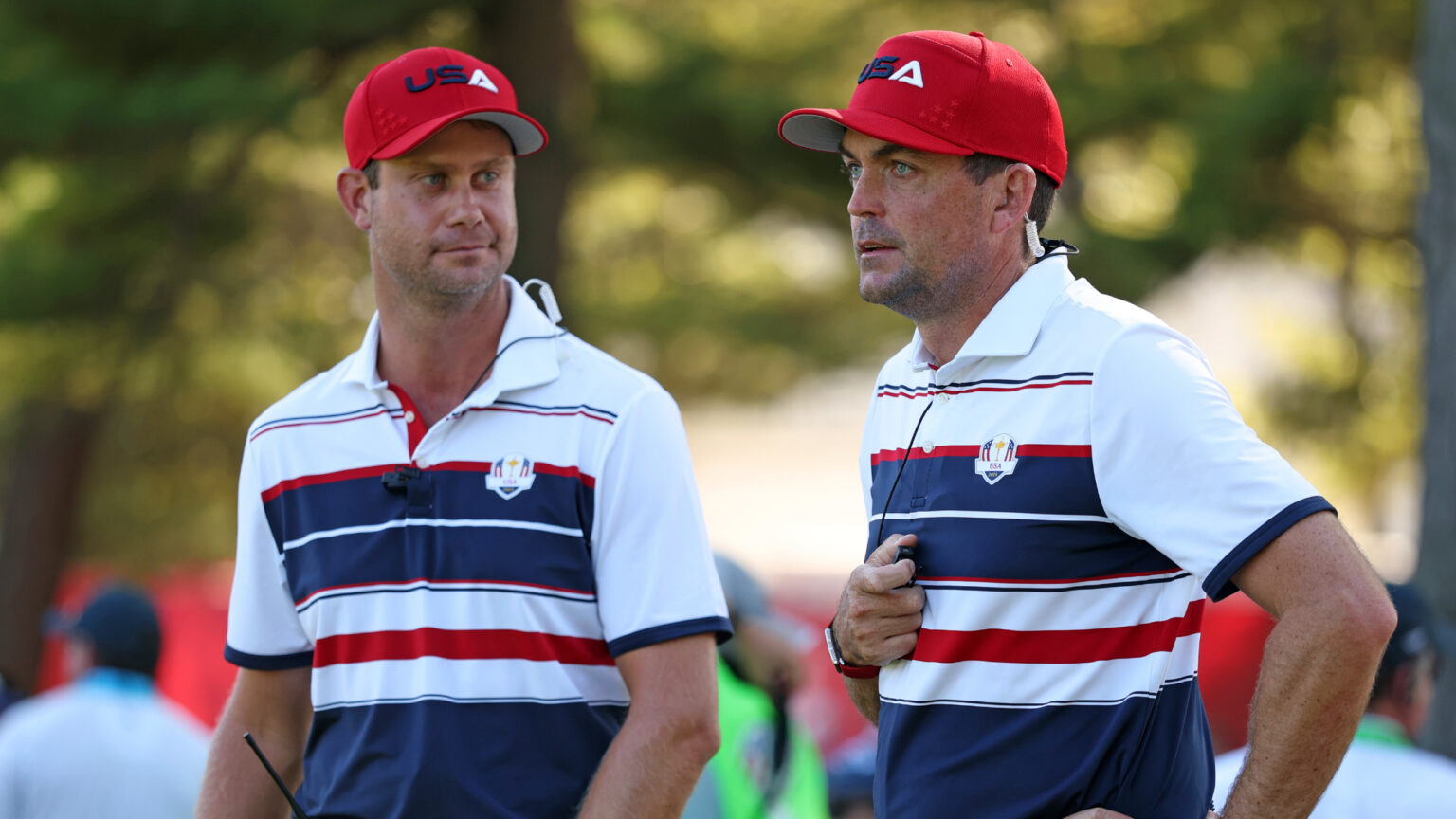Ryder Cup Controversy: The Envelope Rule Sparks Debate in Golf
The recent Ryder Cup, which ended in a nail-biting conclusion with Team Europe clinching the title 15-13 at Bethpage Black, stirred more than just excitement on the course. The controversial "envelope rule," a regulation that awarded both teams half a point before the final singles matches, has ignited a fierce debate among players and fans alike. Keegan Bradley, a key figure in the U.S. team’s campaign, has publicly called for a reassessment of this rule, highlighting its significant implications on player participation and team strategy.
As outlined in the event’s unfolding drama, the envelope rule came into play for only the third time in Ryder Cup history due to Team Europe’s Viktor Hovland withdrawing with a neck injury. This unexpected turn left Harris English, who was to face Hovland, sitting idly as both teams received points without any actual play. Critics argue that this is a fundamental flaw in a high-stakes match like the Ryder Cup, where every point counts toward the ultimate trophy.
When the decision was made, Bradley found himself in a difficult position, having to inform English that he would not be participating in one of the tournament’s most pivotal moments. The implications of this ruling appeared to favor Europe, as they needed only two points to retain the trophy, leaving the American team scrambling for every opportunity. With victory by just a two-point margin, many wondered how different the outcome might have been had the match proceeded as initially planned.
Looking back at the Ryder Cup’s history, the inherent risk and controversy surrounding the envelope rule raises valid concerns. Had the points situation been more precarious, hypotheticals abound about how the absence of an actual match could have dramatically altered the final scorelines. For instance, if Team USA could have snagged the opportunity for a full point, a 14-14 tie could have swung into a narrow victory for the United States. Such considerations highlight the need for reevaluation of this seemingly antiquated rule.
Amid the aftermath of the competition, Bradley’s remarks suggest that he is not alone in advocating for change. Following a valiant effort from the American team to overcome a staggering deficit, he believes that adjustments could improve the Ryder Cup’s fairness and competitiveness. While he did not disclose specific alternatives, Bradley emphasized that it is imperative to reconsider this rule before the next edition of the prestigious tournament.
The impact of the envelope rule extends beyond strategy; it also directly affects player morale and mental preparedness. Harris English shared his experience of learning about his sidelined status right before his warm-up, a scenario that left him feeling helpless. This scenario is particularly disheartening for players who sacrifice tirelessly to represent their teams in such prestigious events. English’s demeanor reflected both disappointment and understanding, as he expressed empathy for Hovland’s injury while yearning to contribute on the course.
Meanwhile, Team Europe’s captain, Luke Donald, stands by the existing rule, citing its longevity. He notes that it’s essential to have such regulations in place for when unforeseen circumstances affect participation levels. Reflecting on historical precedents, Donald pointed out that the United States has utilized this rule previously, suggesting that while the situation may appear disparate, it is within the framework of the game’s long-standing traditions.
Importantly, the envelope rule isn’t the only avenue available for reassessment. Some have proposed adopting elements from the Solheim Cup, which operates under different regulations and may offer a more player-friendly approach. For instance, if a competitor withdraws, their opponent could potentially be awarded a full point instead of the half-point split, harnessing competitive integrity. This idea reflects how golf can evolve to better suit the needs of players while retaining its historic essence.
As we look ahead to future Ryder Cups, the anticipation surrounding how the envelope rule will be addressed adds a layer of intrigue to upcoming competitions. Whether the governing bodies of the sport will heed calls for change or choose to preserve tradition will shape the narrative of the Ryder Cup for years to come. With the continued evolution of golf, adapting such rules could manifest a more dynamic and engaging competition that prioritizes fairness and competitiveness for all participants.
In the heart of this discourse lies the quest for improvement and innovation in one of golf’s flagships tournaments. The takeaway from this Ryder Cup isn’t simply the score; it’s the continuing dialogue on how to keep the spirit of the game alive while embracing necessary changes. Both Bradley’s unwavering advocacy and English’s personal reflections signify a shift in how players wish to see the sport evolve. As golf enthusiasts, we are left wondering: will the next Ryder Cup see a new era characterized by adaptation and enhancement, or will history repeat itself once more? Only time will tell as we move forward into future competitions.
